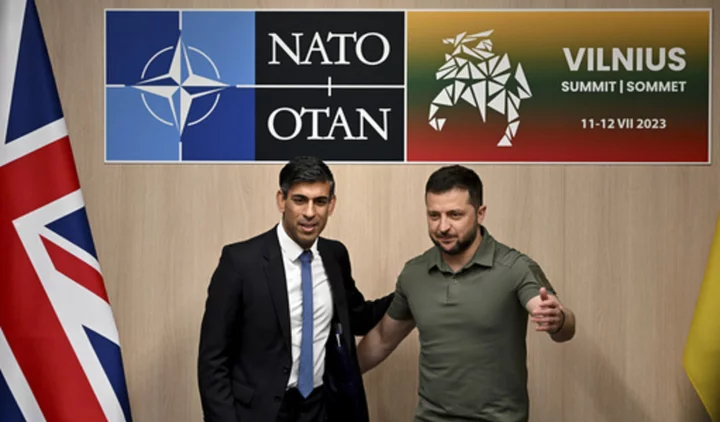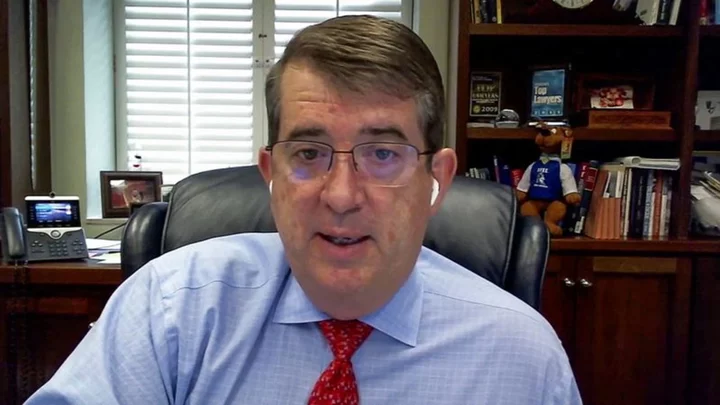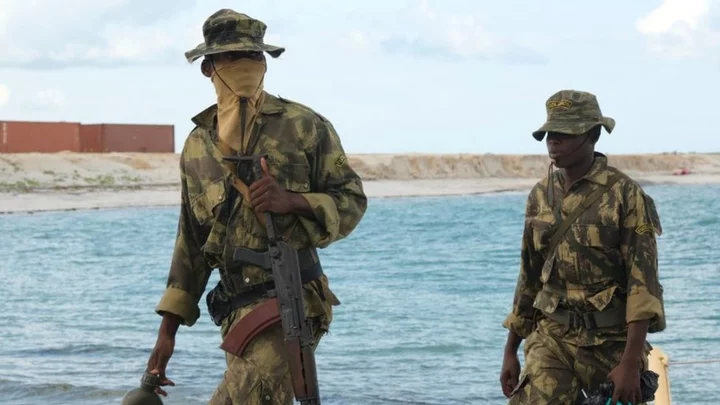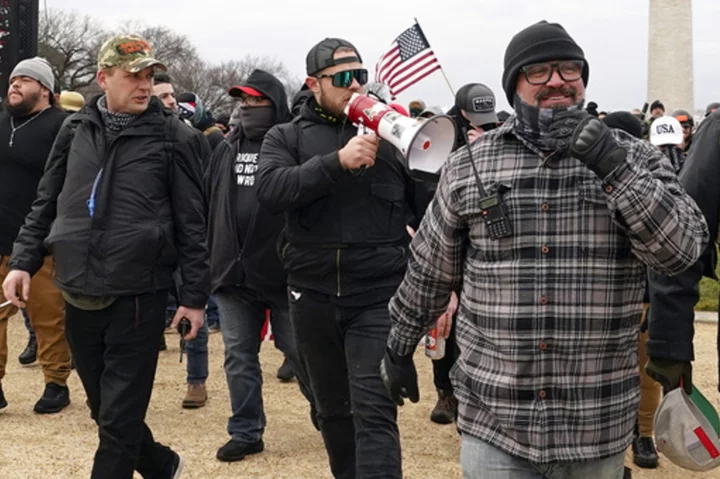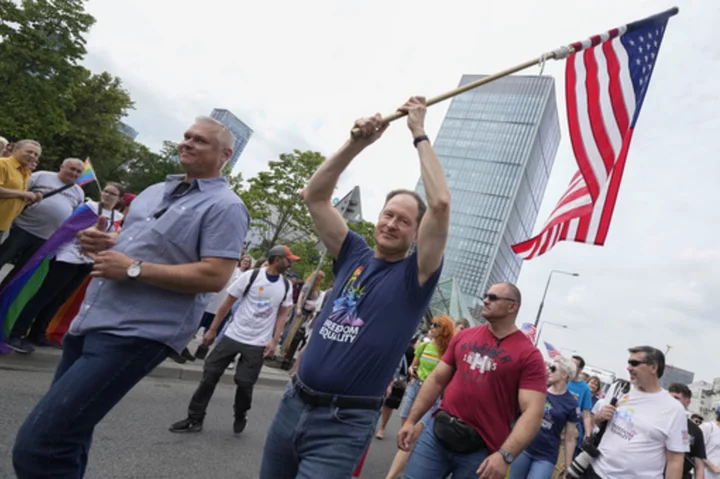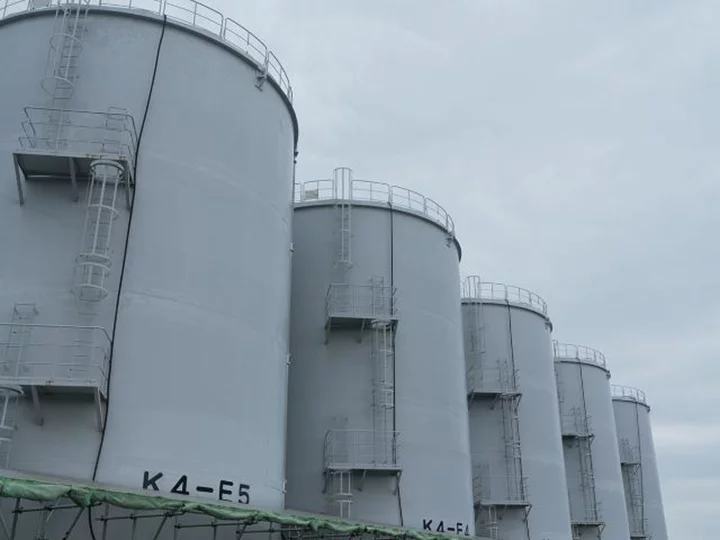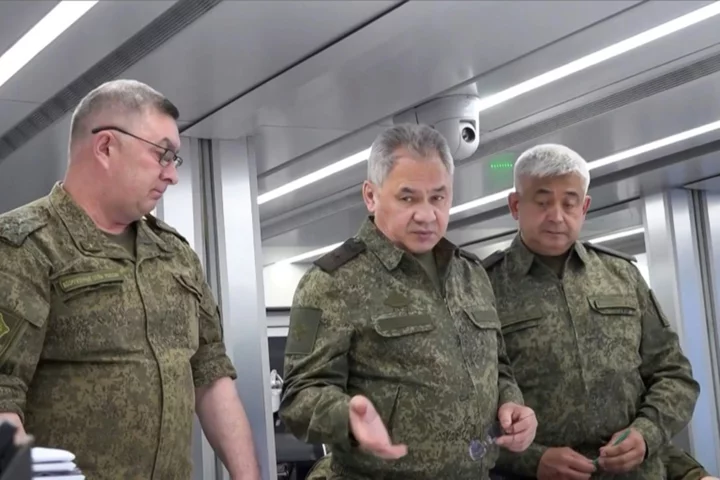VILNIUS, Lithuania (AP) — Follow along for updates on the summit of the NATO military alliance in Lithuania’s capital:
What to know:
— NATO backs Ukraine's fight vs. Russia but doesn't invite Kyiv to join
— Sweden’s rocky road from neutrality toward NATO membership
— What is NATO doing to help Ukraine in the war with Russia?
——
The Kremlin considers plans by G7 nations to offer Ukraine security guarantees “extremely ill-judged and potentially very dangerous,” spokesman Dmitry Peskov told reporters on Wednesday.
Britain issued a statement a day earlier on plans by the G7 — made up of Britain, Canada, France, Germany, Italy, Japan and the United States — to agree Wednesday to a “significant international framework for Ukraine’s long-term security arrangements.”
A joint statement expected to be signed by G7 members on the sidelines of the NATO summit in Lithuania would mark the first time “that this many countries have agreed a comprehensive long-term security arrangement of this kind with another country,” the British government said.
Countries providing security guarantees to Ukraine “essentially ignore the international principle of indivisibility of security,” Peskov said: “By providing security guarantees to Ukraine, they’re infringing on Russia’s security.”
“We consider this extremely ill-judged and potentially very dangerous,” he said.
Peskov also reiterated Russia's longstanding opposition to Ukraine's potential membership in NATO, calling it “an offensive alliance” that “brings instability and aggression” to the world.
——
China has renewed its concern about NATO's eastward "expansion” as the alliance wraps up its summit in Lithuania on Wednesday.
A joint communique from the Atlantic alliance a day earlier said China's “stated ambitions and coercive policies challenge our interests, security and values,” while indicating that NATO members “remain open to constructive engagement” with Beijing.
China issued a strong rebuttal, saying it would “resolutely safeguard its sovereignty, security and development interests, and it resolutely opposes NATO’s eastward expansion into the Asia-Pacific.”
“NATO has a bad track record in history,” China’s diplomatic mission to the European Union in Brussels said in a statement, faulting NATO for “meddling in affairs beyond its borders, and creating confrontation.”
“This fully exposes NATO’s hypocrisy and its ambition of seeking expansion and hegemony,” it added, calling the NATO statement “tedious” and saying it was “playing the same old tune, filled with Cold War mentality and ideological bias.”
Like Russia, China has long voiced concerns that NATO has been on an eastward expansion, with both the vice foreign minister, Le Yucheng, and Foreign Ministry spokeswoman Hua Chunying referring to what they perceived as a continual expansion of the alliance.
——
Hungary has welcomed a NATO decision to bring Ukraine closer to the military alliance without receiving a clear path for joining it, saying Wednesday that a “sense of responsibility” had prevailed at a summit where Kyiv had hoped for more concrete assurances for NATO membership.
Speaking in an interview on the sidelines of the summit in Vilnius, Lithuania, Hungarian Foreign Minister Peter Szijjarto said that providing no invitation or timeline for Ukraine’s NATO membership was the “only responsible decision” that NATO could take in light of the ongoing war – and one that Kyiv would have to settle for despite its broader hopes.
“A decision has been taken that does not risk escalating the war,” Szijjarto said. “The member states have made it clear that Ukraine will be invited to join NATO only if it fulfils all the conditions and if the allies unanimously agree to this.”
Szijjarto also urged NATO not to become an “anti-China” alliance, and said cooperation with China was as economically advantageous as partnerships with countries like South Korea and Japan.
“NATO should not be given an anti-China edge, so let’s make it clear that NATO is not an anti-China organization,” Szijjarto said. “It was not created against China, and its current operation is not against China. We do not see China as a risk, we do not see it as an adversary or an enemy.”
——
Ukrainian President Volodymyr Zelenskyy says issues including new military aid for Ukraine, a formal invitation for his country to join NATO, and security guarantees from its member states were on tap at second and final day of the alliance's summit on Wednesday.
The comments from the Ukrainian leader came a day after NATO member countries eased the pathway for Ukraine to join one day but stopped short of providing a specific timetable for an invitation that Zelenskyy has sought for Ukraine.
“We want to be on the same page with everybody. For today, what we hear and understand is that we will have this invitation (to join NATO) when security measures will allow, I want to discuss with our partners all these things,” Zelenskyy told reporters in the Lithuanian capital.
A post published on Zelenskyy’s official Twitter account said he had met with Canadian Prime Minister Justin Trudeau on Wednesday to discuss security guarantees for Ukraine “on its way to NATO.”
Prime Minister Rishi Sunak of Britain, which has provided considerable military support to Kyiv, told Zelenskyy that the efforts of Ukraine’s soldiers against Russian forces were “inspiring to everyone. We’re proud to have played a part in training some of them.”
NATO members have long proposed that Ukraine could join one day, but Tuesday's decision shows the challenges of reaching consensus among the alliance’s current members while Russia's war in Ukraine continues.
Under Article 5 of the NATO charter, members are obligated to defend each other from attack, which could swiftly draw the U.S. and other nations into direct fighting with Russia.

